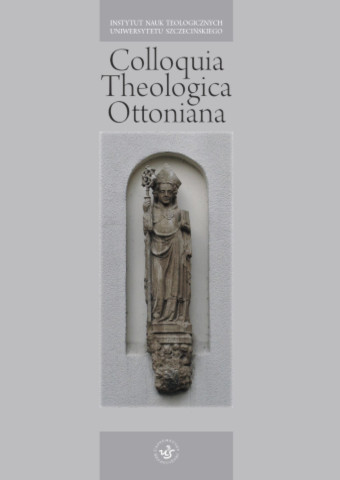
ISSN: 1731-0555
eISSN: 2353-2998
OAI
DOI: 10.18276/cto.2019.2-01





Issue archive /
2/2019
Bóg i uniwersalia
(God and universals)
| Authors: |
Stanisław
Judycki

Uniwersytet Gdański |
| Keywords: | God universals Platonism realism conceptualism nominalism |
| Data publikacji całości: | 2019-12 |
| Page range: | 28 (7-34) |
Abstract
The first two parts of the article discuss the motivations leading to acceptance of the existence of universals, as well as their types. Four main positions in the so-called the dispute about universals are presented: conceptual realism (Platonism), moderate conceptual realism, i.e. the Aristotelian solution, conceptualism and nominalism (in various versions). Further parts of the article present a critique of nominalist, Aristotelian and conceptual solutions. Against this background, the author argues in favor of theistic conceptual realism, showing how to interpret the relationship between human semantic consciousness and universals existing in God’s mind. In this context, issues related to the concepts of cosmic and biological evolution and the concept of creation are taken into account.
Download file
Article file
Bibliography
| 1. | Armstrong D.M., Universals. An Opinionated Introduction, Boulder 1989. |
| 2. | Arystoteles, Metafizyka, przeł. K. Leśniak, Warszawa 1983. |
| 3. | Aune B., Universals and Predication, w: The Blackwell Guide to Metaphysics, Oxford 2002, s. 131–150. |
| 4. | Broad C.D., The Mind and Its Place in Nature, London 1925. |
| 5. | Chrudzimski A., Realistyczne teorie uniwersaliów, w: Przewodnik po metafizyce, red. S.T. Kołodziejczyk, Kraków 2011, s. 127–159. |
| 6. | Goodman N., Quine W.V.O., Steps Toward a Constructive Nominalism, „The Journal of Symbolic Logic” 12 (1947), s. 105–122. |
| 7. | Hartmann N., Zur Grundlegung der Ontologie, Berlin–Leipzig: Walter de Gruyter 1935. |
| 8. | Hering J., Bemerkungen über das Wesen, die Wesenheit und die Idee, „Jahrbuch für Philosophie und phänomenologische Forschung” 4 (1921), s. 496–543. |
| 9. | Hoffman J., Rosenkrantz G.S., Platonistic Theories of Universals, w: The Oxford Handbook of Metaphysics, red. M. Loux, D.W. Zimmerman, Oxford 2003. |
| 10. | Ingarden R., O pytaniach esencjalnych [1925], w: R. Ingarden, Z teorii języka i filozoficznych podstaw logiki, Warszawa 1972, s. 327–482. |
| 11. | Ingarden R., Spór o istnienie świata, t. 2, cz. 1, Warszawa 1987. |
| 12. | Kant I., Krytyka czystego rozumu [1781], przeł. R. Ingarden, Warszawa 1986. |
| 13. | Knebel S.K., Schantz R., Scholz O.R., Universalien, w: Historisches Wörterbuch der Philosophie, red. J. Ritter, t. 11, Basel 2001, kol. 179–199. |
| 14. | Kotarbiński T., Elementy teorii poznania, logiki formalnej i metodologii nauk [1929], Wrocław–Warszawa–Kraków 1961. |
| 15. | Küng G., Ontologie und logistische Sprachanalyse. Eine Untersuchung zur zeitgenössischen Universaliendiskussion, Wien 1963. |
| 16. | Loux M., Metaphysics. A Contemporary Introduction, 3nd ed., New York–London 2006. |
| 17. | Lowe E.J., A Survey of Metaphysics, Oxford 2002. |
| 18. | Platon, Parmenides, przeł. W. Witwicki, Warszawa 1961. |
| 19. | Rosenkrantz G.S., Haecceity. An Ontological Essay, Dordrecht 1993. |
| 20. | Stegmüller W., Das Universalienproblem einst und jetzt, „Archiv für Philosophie” 6 (1956), s. 192–225; 7 (1957), s. 45–81. |
| 21. | Szymura J., Nominalizm, w: Przewodnik po metafizyce, red. S.T. Kołodziejczyk, Kraków 2011, s. 161–210. |
| 22. | Tomasz z Akwinu, Summa theologica, suppl. q. 44, a. 2, ad 3, w: Sancti Thomae de Aquino, Opera Omnia iussu impensaque Leonis XIII P.M. edita, Romae 1888–1906. |